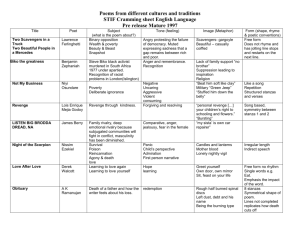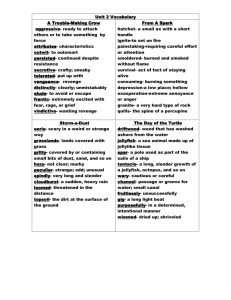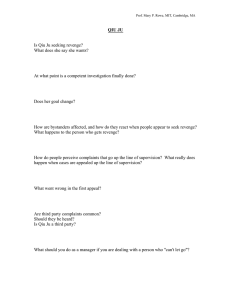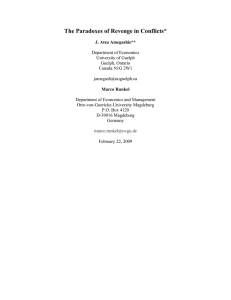PPT
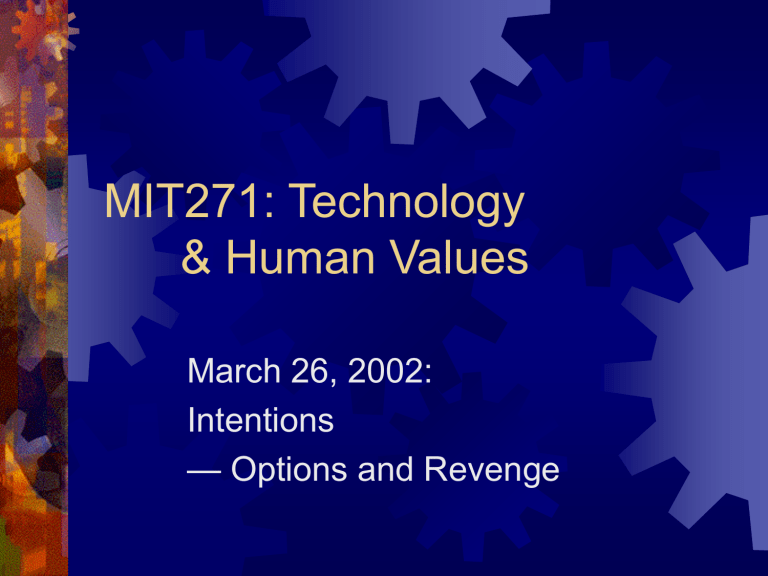
MIT271: Technology
& Human Values
March 26, 2002:
Intentions
— Options and Revenge
Administration
Tests back Thursday
REMINDER: Exam
10-12
Sunday April 28
Natural Science 7
Study Questions available last class
Related Upcoming Courses
Summer Intersession:
Geography105A: Conservation and
Development
Summer Day:
Philosophy 020: Introduction to Philosophy
(with me)
Fall 2002:
Philosophy 245 Media Ethics
MIT2?? Images and Persuasion in Science
MIT2?? Objectivity
Virginia Postrel
Redefining the political landscape after the Cold War
The old left-right distinction often fails to hold
With new technological issues in politics, the conflict is more between statists , who may be right or left, and dynamists; and among different types of stasist
Types of stasist
Reactionaries : value stability, reverse change
cultural vitality (religious, environmental) e.g. Unabomber, Strong
Technocrats : value control, plan change
traditional ideals of the good life e.g. Dyson, Gelernter
The One Best Way
The technocratic notion of progress
A western expectation: uniform, comprehensive institutions guided by experts
Debates focus on deciding for every new development how it is to be implemented — competing technocratic schemes
Edward Tenner:
Revenge Theory
Technologies and their sustaining bureaucracies have some troubling sides
“The point is understanding choices.” [emphasis mine]
Repeating
Easier/faster chores may have to be done more often, or require additional chores
e.g. household appliances, computerized revision, repetitive stress disorders
Recomplicating
Elaborate systems required to sustain new technology make it hard to understand
Especially the simplifying abilities of computers
Recongesting
System becomes slower and less comfortable
E.g. private cars offering apparent speed
Regenerating
Solution revives or amplifies problem
E.g. pest control
Rearranging
Problem merely shifted
E.g. air-conditioning, disaster control
Question
Can technocratic stasis be justified by concerns about revenge effects?





